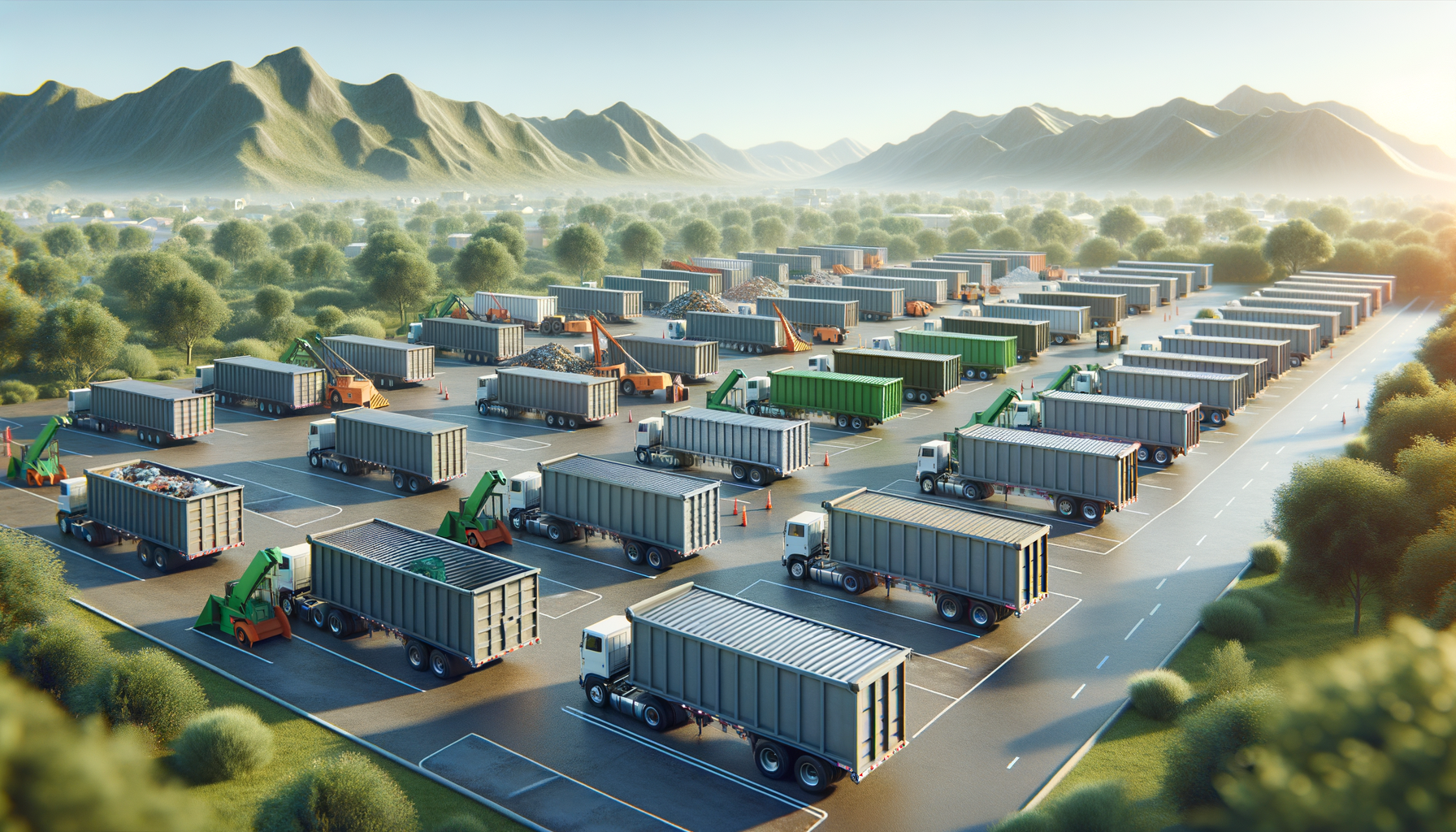
Dumpster Trailers: A Reliable Solution for Waste Removal Projects
Understanding Dumpster Trailers
Dumpster trailers are versatile and mobile waste management solutions that are increasingly popular for various projects, ranging from construction to large-scale cleanups. Unlike traditional stationary dumpsters, these trailers offer flexibility and ease of transportation, making them a preferred choice for many. The structure of a dumpster trailer typically includes a sturdy frame, wheels, and a spacious container that can hold significant amounts of waste. Their design allows them to be easily hitched to vehicles, facilitating the transportation of waste to disposal sites. This mobility is particularly advantageous in urban areas where space is limited and maneuverability is essential.
One of the primary benefits of dumpster trailers is their adaptability. They come in various sizes and types, catering to different project needs. For instance, smaller trailers are ideal for residential cleanups, while larger ones can accommodate industrial waste. This flexibility ensures that users can select a trailer that fits their specific requirements, optimizing efficiency and cost-effectiveness.
Additionally, dumpster trailers contribute to environmental sustainability by promoting organized waste management. By providing a designated space for waste collection, they help prevent littering and ensure that waste is disposed of responsibly. This aspect is crucial in maintaining cleanliness and reducing environmental impact, aligning with global efforts towards sustainable waste management practices.
Benefits of Using Dumpster Trailers
Using dumpster trailers for waste management offers numerous advantages that make them an attractive option for both individuals and businesses. Firstly, their mobility allows for easy relocation, enabling users to place them in convenient positions for efficient waste collection. This feature is particularly beneficial on construction sites where waste generation is continuous and requires frequent removal.
Another significant benefit is the cost-effectiveness of dumpster trailers. Renting or purchasing these trailers can be more economical than traditional waste disposal methods, especially for short-term projects. They eliminate the need for multiple trips to waste disposal facilities, saving time and fuel costs. Furthermore, many service providers offer flexible rental agreements, allowing users to choose durations that best suit their project timelines.
Dumpster trailers also contribute to improved safety on worksites. By providing a central location for waste collection, they minimize the risk of accidents caused by scattered debris. This organized approach not only enhances safety but also improves the overall workflow, as workers can focus on their tasks without the hindrance of waste-related obstructions.
In summary, the benefits of using dumpster trailers are multifaceted, encompassing convenience, cost savings, and enhanced safety. These advantages make them a practical choice for a wide range of waste management needs.
Applications in Various Industries
Dumpster trailers find applications across numerous industries, each benefiting from their unique features. In the construction industry, for example, these trailers are indispensable for managing debris and construction waste. The ability to move them around the site ensures that waste is collected efficiently, reducing downtime and maintaining a clean working environment.
In the realm of landscaping, dumpster trailers are invaluable for handling organic waste such as soil, branches, and leaves. Landscapers can easily transport these materials to disposal or recycling facilities, promoting eco-friendly practices. Similarly, in the agricultural sector, dumpster trailers assist in managing farm waste, contributing to sustainable farming operations.
Beyond these industries, dumpster trailers are also utilized in residential settings for large-scale cleanups, such as after renovations or during community events. Their capacity to handle significant amounts of waste makes them suitable for such purposes, ensuring that cleanup processes are streamlined and efficient.
Overall, the versatility of dumpster trailers allows them to be employed in diverse sectors, each leveraging their capabilities to enhance waste management practices.
Comparing Dumpster Trailers to Traditional Dumpsters
When it comes to waste management solutions, both dumpster trailers and traditional dumpsters have their merits. However, understanding their differences can help users make informed decisions based on their specific needs.
Traditional dumpsters are stationary and often larger, making them ideal for long-term projects or locations with a constant need for waste disposal. They can accommodate significant volumes of waste, which is beneficial for large-scale operations. However, their immobility can be a drawback in situations where flexibility is required.
In contrast, dumpster trailers offer the advantage of mobility, allowing them to be easily relocated as needed. This feature is particularly useful for projects that require frequent changes in waste collection points. Additionally, their smaller size compared to traditional dumpsters makes them suitable for projects with limited space or those requiring quick setup and removal.
Ultimately, the choice between dumpster trailers and traditional dumpsters depends on factors such as project duration, waste volume, and site accessibility. By evaluating these aspects, users can select the option that best aligns with their waste management objectives.
Conclusion: Making the Right Choice
In conclusion, dumpster trailers present a reliable and efficient solution for waste management across various projects and industries. Their mobility, cost-effectiveness, and adaptability make them a valuable asset for managing waste responsibly and sustainably.
For those considering waste management options, it is essential to assess the specific requirements of their projects. Factors such as project scale, waste type, and site conditions should guide the decision-making process. By choosing the appropriate waste management solution, users can enhance operational efficiency, reduce environmental impact, and contribute to a cleaner, more sustainable future.
Ultimately, dumpster trailers offer a practical approach to waste management, ensuring that projects are completed smoothly and responsibly.

